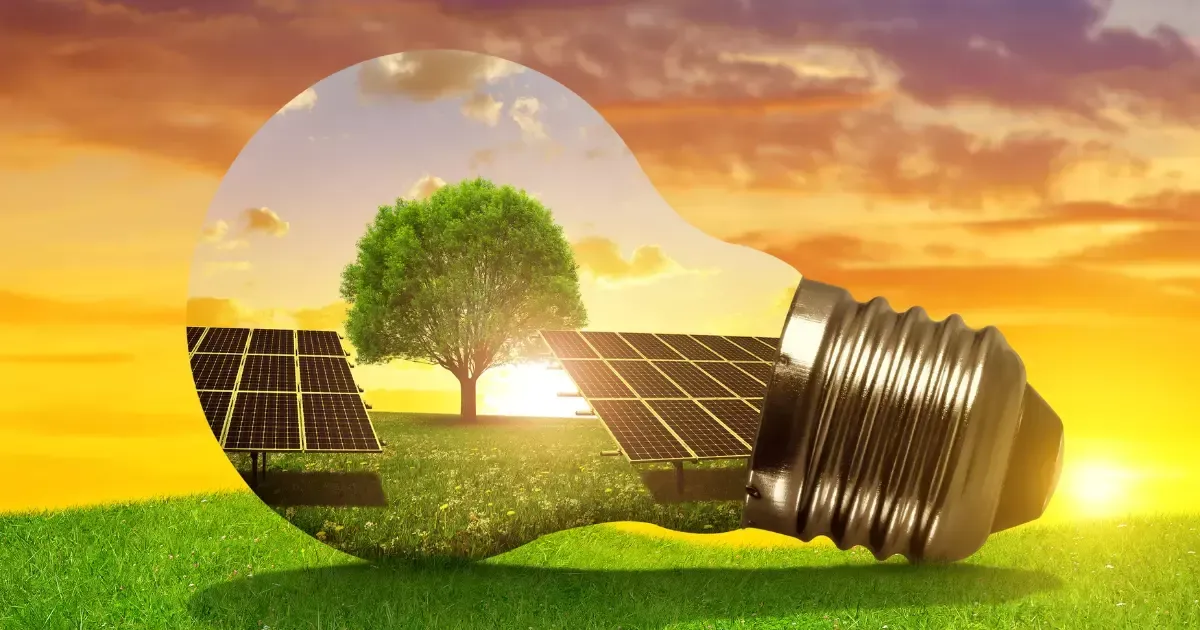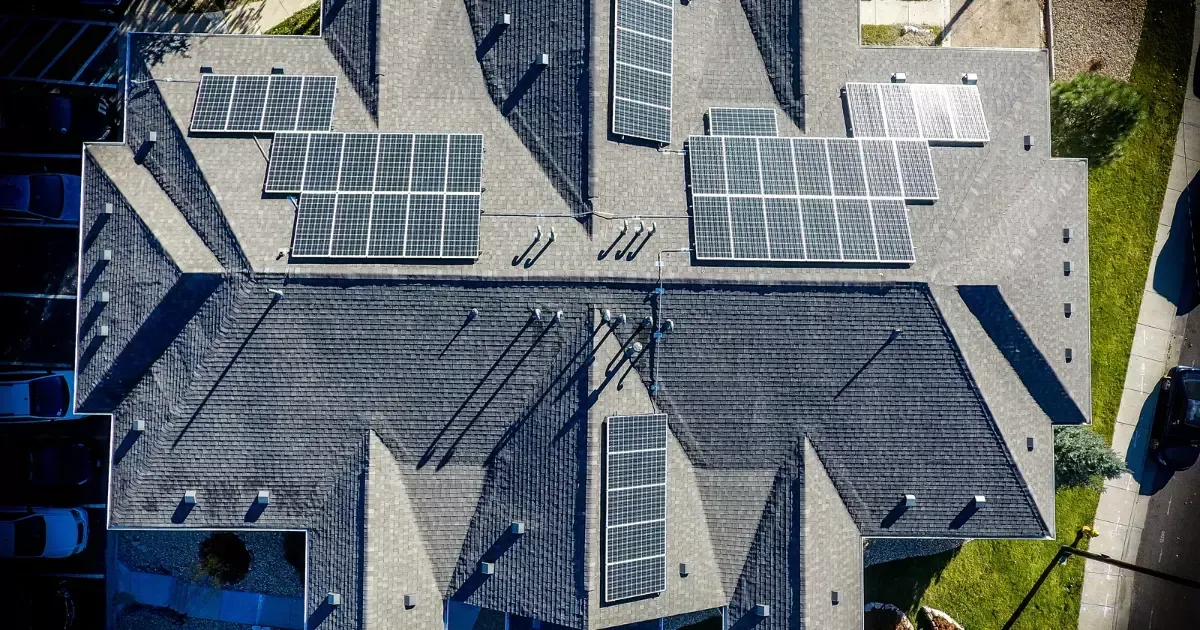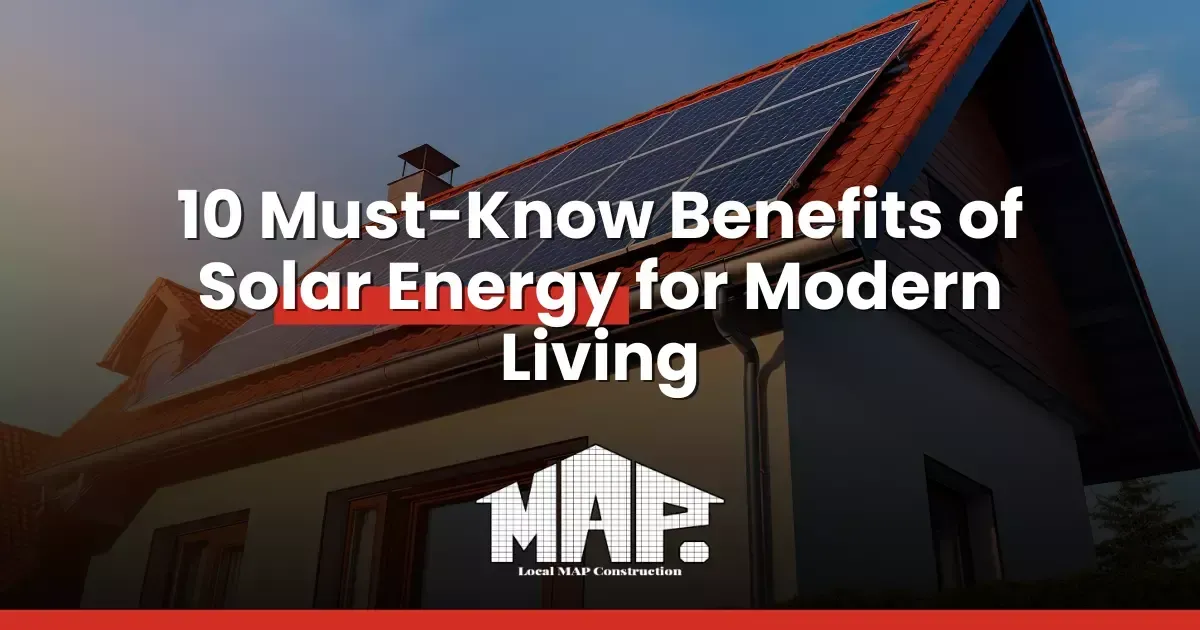10 Must-Know Benefits of Solar Energy for Modern Living
The benefits of solar energy go way beyond just saving money on your power bill. With energy costs rising and concerns about fossil fuels growing, more homeowners are turning to solar panels for clean, reliable power. Solar isn’t just popular. It’s a smart way to cut electric bills, protect the environment, and boost long-term value. To get the most out of these benefits, it's important to work with an installer who understands your goals and can deliver a system that truly fits your home.
What Are the Benefits of Solar Energy You Should Know?

Choosing solar energy offers more than one-time savings. It gives homeowners long-term benefits, from lowering expenses to protecting the environment. With advances in solar photovoltaic and renewable energy technologies, more homes now tap into solar power with ease. Understanding these advantages helps you decide if it's the right move. Read to know the ten must-know benefits of switching to solar.
Lower Monthly Electricity Bills
Solar panels help reduce your utility bill by converting sunlight into usable solar electricity. Over time, this can save homeowners thousands, especially in high-usage households. With net metering, you can also earn credits for sending extra energy back to the grid.
Protection From Rising Utility Rates
Using solar energy shields you from unpredictable price hikes caused by fossil fuel companies. By generating your solar power, you rely less on your fossil fuel system, making your monthly expenses easier to plan and control.
Tax Credits, Rebates, and Incentives
The solar investment tax credit (ITC) allows you to reduce federal tax liability based on your system's cost. Many states offer rebates and community solar programs that help lower your solar installation expenses. These programs make solar power programs easier to access.
Smaller Carbon Footprint
Renewable energy systems help reduce greenhouse gas emissions and fight climate change. Unlike fossil fuels, solar power generation does not release harmful pollutants. Choosing solar helps protect the environment for future generations.
Energy Independence and Resilience
A solar system with battery storage gives you power when the grid goes down. This increases your energy independence and helps you stay prepared during outages. This means you can power essentials like refrigerators, medical devices, and internet routers during blackouts.
Higher Home and Property Value
Homes with residential solar often sell faster and for a higher price. Buyers are drawn to lower electricity bills and eco-friendly upgrades. This makes solar a smart investment that improves the value of solar in your property.
Low Maintenance and Long Lifespan
Modern photovoltaic panels are built to last and need very little upkeep. Most systems are backed by strong warranties and can handle harsh weather conditions. This makes your solar capacity a reliable long-term solution.
Flexible Options for Every Home
From ground-mounted solar installations to roof-mounted solar photovoltaic panels, there’s a fit for almost any property. Even off-grid solar energy options are available for remote areas. Options include rooftop panels, ground-mounted arrays, or even off-grid setups for remote areas.
Smart-Home and EV Synergy
Connecting solar power with electric vehicles and smart-home energy tools helps you manage your energy use more effectively. This reduces your dependence on the grid while boosting efficiency and lowering your costs.
Supports Local Jobs and the Clean-Energy Economy
The solar industry helps create jobs in installation, engineering, and manufacturing. By choosing solar, you're contributing to the local economy and supporting the broader shift to renewable energy.
How Do Homeowners Benefit from Solar Energy?

Homeowners gain long-term value when they switch to solar. With energy prices climbing and concerns about sustainability increasing, solar offers a cleaner, cost-effective option.
Lower Energy Bill Costs
A solar system can help lower your electricity bills, especially if your home uses a lot of power. With net metering, you can send excess energy back to the grid and earn credits. This adds up to major savings over time.
Qualify for Solar Incentives
Programs like the solar tax credit, rebates, and the investment tax credit make solar more affordable. These incentives reduce the upfront cost of your solar installation and increase the return on your investment.
Backup Power During Outages
Battery storage allows your household solar installations to supply electricity even when the grid fails. This keeps your home safe and comfortable in unexpected situations.
Increase Home Resale Value
Homes with solar-connected systems often attract more buyers. Properties with solar panels tend to sell faster and for better prices due to their energy-saving benefits.
Support Clean Green Living
By switching to renewable energy, you reduce your reliance on fossil fuels and help protect the environment. Every solar system installed is a step toward a cleaner, greener planet.
Read also: Smart Guide to the Best Solar Panels for Basement Power
Frequently Asked Questions
Do Solar Panels Work on Cloudy Days?
Yes. Even with less sunlight, solar PV cells can still produce power. While output may drop during cloudy conditions, solar irradiation is still strong enough to keep energy flowing.
Will My Solar System Work During a Power Outage?
Most photovoltaic systems automatically shut off during power outages for safety reasons. To maintain electricity during an outage, you'll need battery storage or a solar generator as a backup source.
How Long Do Solar Panels Last?
Most solar photovoltaic panels last between 25 and 30 years. With proper care, they continue to perform efficiently for decades.
Is Solar Installation Worth It in Cold or Snowy Areas
Yes. Cold temperatures can improve the performance of solar energy's versatility. Panels often shed snow quickly due to their dark surface and slight heat generation.
How Much Roof Space Do I Need for Solar Panels
A typical home requires around 400 to 600 square feet of roof space. If roof space is limited, you may consider solar thermal systems, solar collector panels, or concentrated solar thermal designs to increase efficiency.
Wrapping Up
Choosing the right installer is one of the most important steps in getting the full benefits of solar energy. Solar helps lower electricity bills, reduce your carbon footprint, and make your home more self-reliant. Homeowners can also take advantage of rebates, tax credits, and long-term savings. With more options now available, switching to solar power is easier and more practical than ever.
At
Local Map Construction, we guide you through every step, from design to installation, using high-quality materials and up-to-date solar technology. We make solar energy practical, cost-effective, and aligned with your long-term needs. Call us today at 970-218-1620 to explore the right solar solution for your home.

